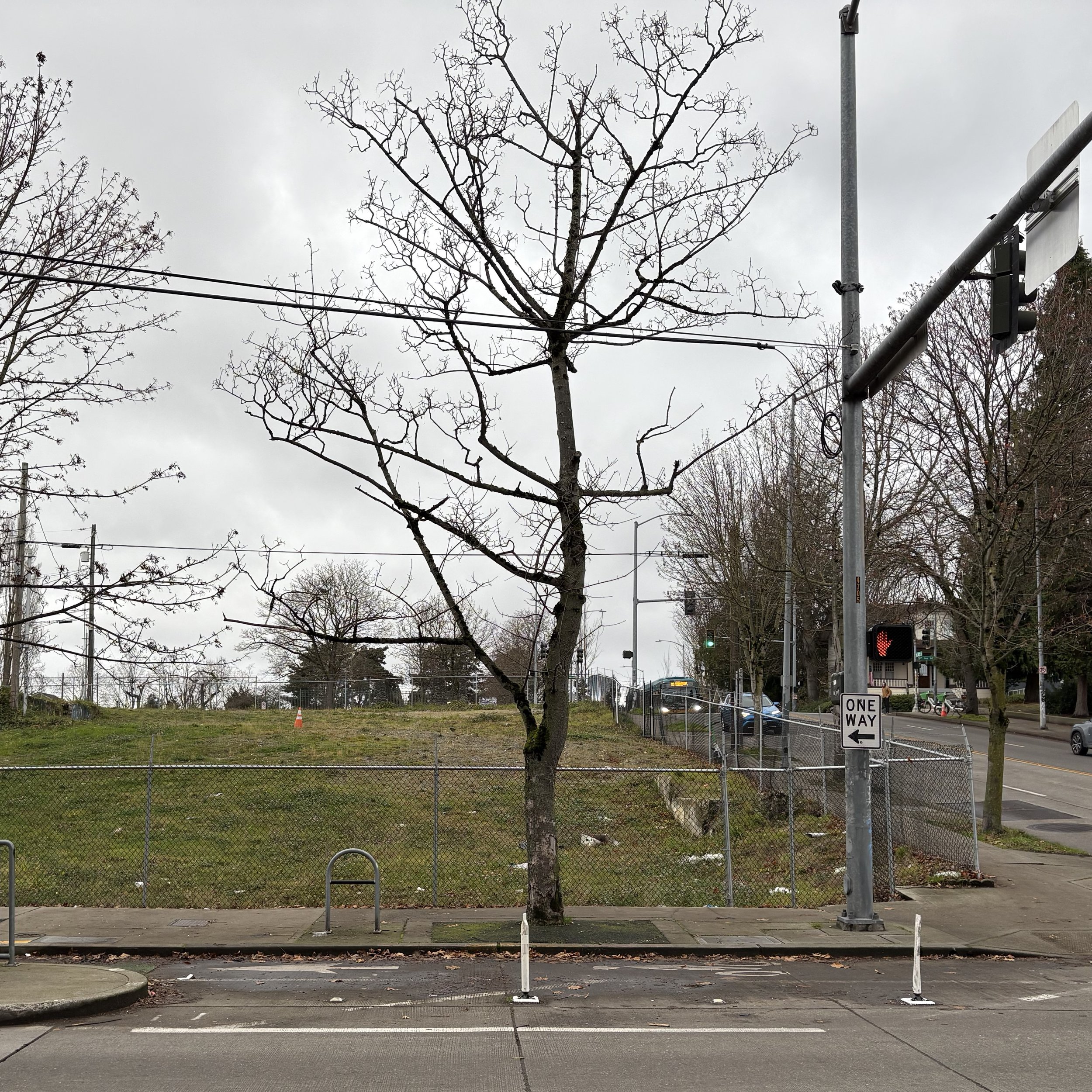The Seven Gables Theatre was a former American Legion hall before becoming a theater in 1976. Below the theater was Ristorante Doria, a cozy Italian restaurant, and south of that was Cinema Books, catering to neighborhood cinephiles and UW film students. It was a unique venue unlike any you may have encountered. At its one screen, there were two tiers, an upper and lower. The room was lit by a chandelier in the center and a cover over the screen had a stained glass-style scene on it. When it was showtime, the cover and the chandelier rose slowly and elegantly into the ceiling before deluminating. The building achieved its landmark status, but its owners let it fester. On December 24th, 2020, a fire of indeterminate origin gutted and demolished the structure. A fenced-off crater has stood in its place ever since.
A similar story began to play out downtown with the Seattle Cinerama. In February 2020, pre-COVID-19 lockdown, the theater's owners announced a closing and a laying off of staff to renovate the space. By May 2020, the Cinerama's owners had decided to close the theater for good. Just like in the late '90s when the theater was saved from being torn down by billionaire Paul Allen, SIFF was eager to step in and purchase the space to keep it going. In years-long negotiations, SIFF purchased the Cinerama and reopened it in December 2023, offering blockbusters, festival screenings, and repertory marathons in between. In both cases of the Cinerama being saved, it took a group within the city who cared about the history and property and valued a unique arts space.
In the case of the Guild 45th and the Seven Gables, people looked to outsiders and caretakers who had no real reason to invest. Often it is when we who love a place get involved that miracles happen. It is when we band against fickle, dollar sign-eyed landlords looking for the next tenant to gouge that those negative voices are silenced. It takes a lot of work, but it can be worth it.



